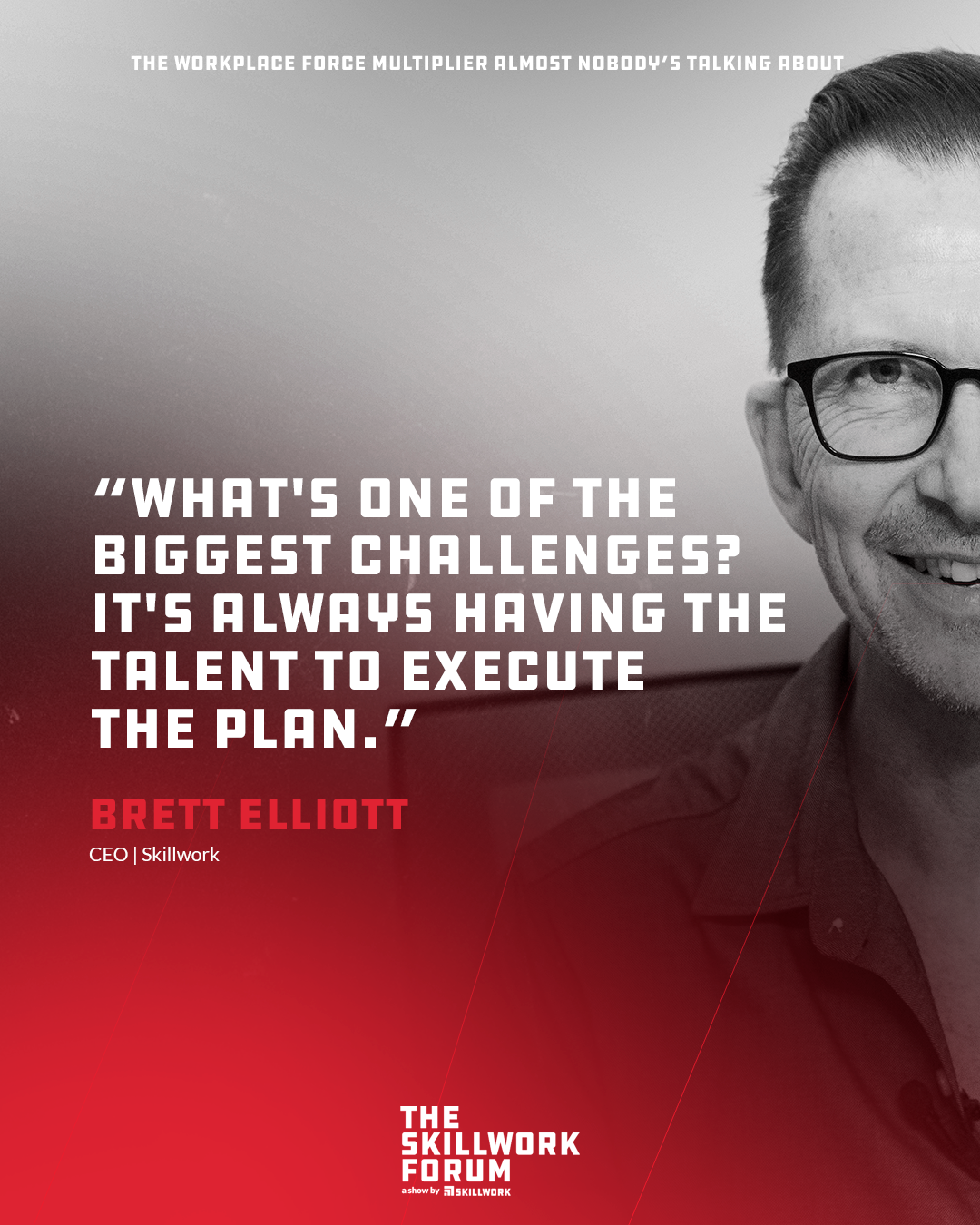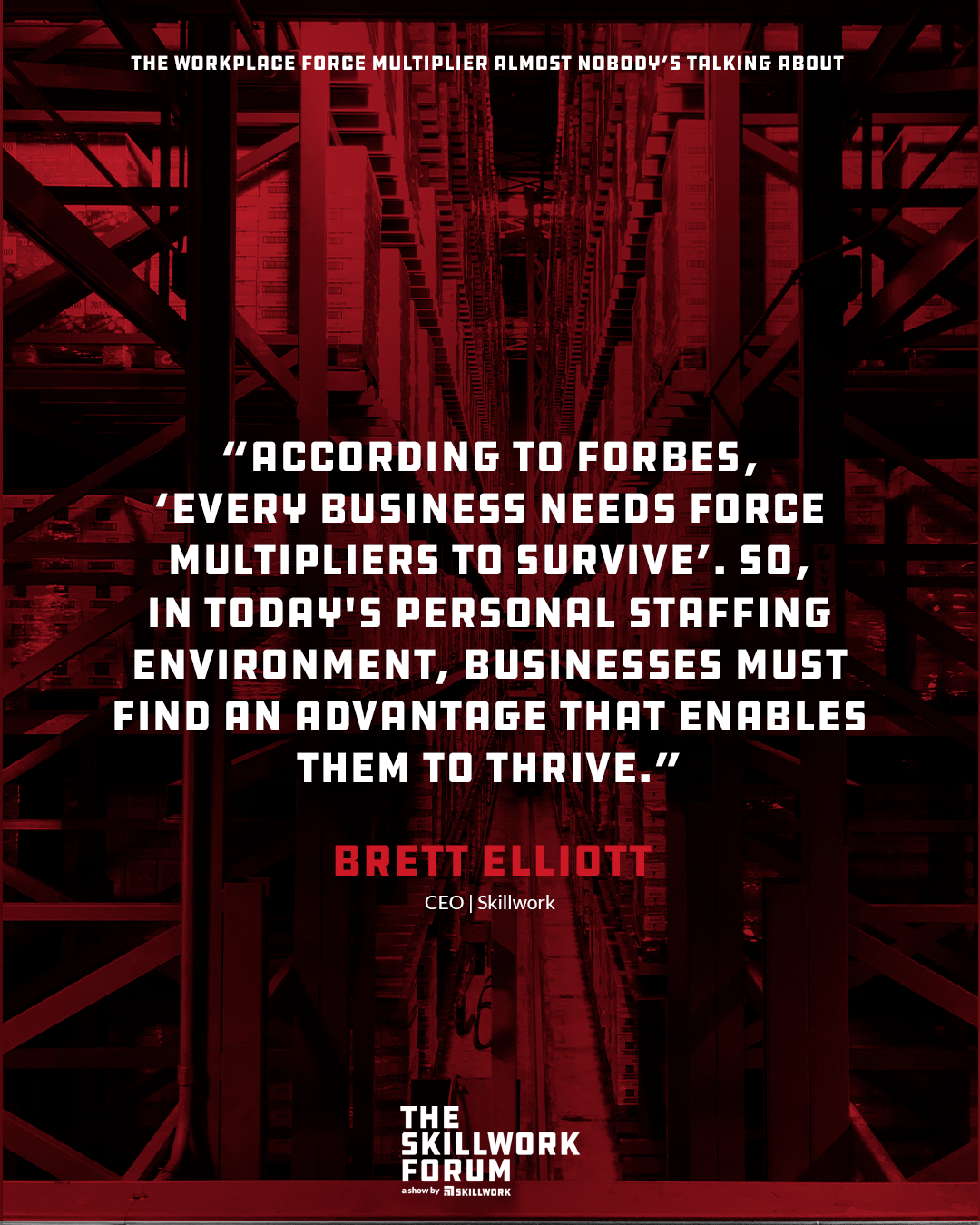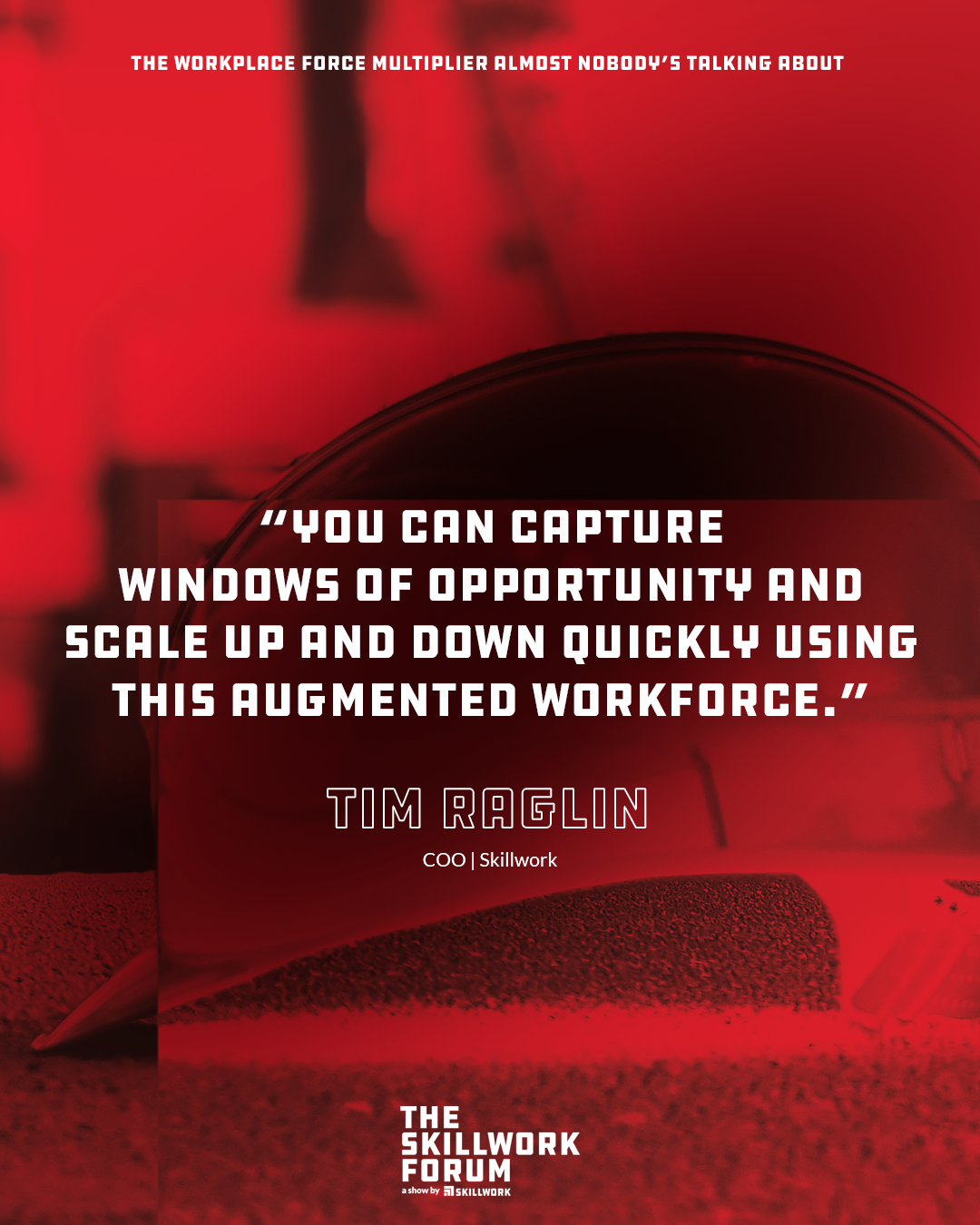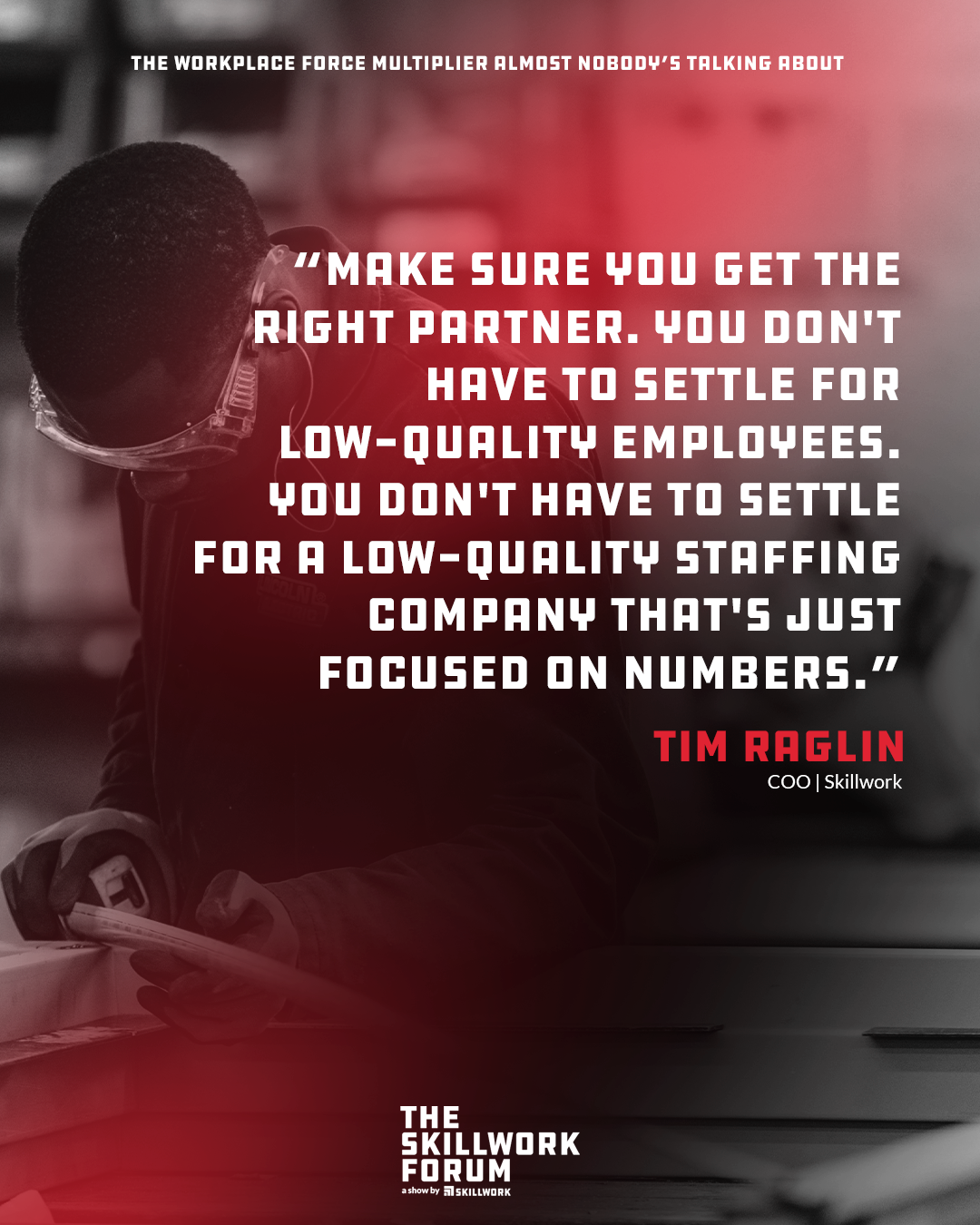The Workplace Force Multiplier In Business That Nobody’s Talking About
If you desire you can listen this episode on Spotify.
On this forum, we gather to talk about industry issues, emerging trends, and challenges all around the skilled trades and the skilled trades industries.
Today, we wanted to talk about this concept that came up in some conversations we had recently called force multiplication or a force multiplier. If you're not familiar with this term, we'll break it down so you can understand it.
What Is a Force Multiplier In Business?
In a nutshell, a force multiplier is a process, tool, or tactic that makes everything around it better, stronger, and easily scalable.
The term has its roots in military tactics. The textbook definition when you're thinking about military tactics is this: a factor or combination of factors that gives personnel the ability to accomplish greater feats than without it. Think about an automatic weapon versus a single shot—that's a force multiplier.
When special forces teams were introduced around the Vietnam era, the idea was that you could insert a highly trained, agile 8 to 12-person team that had all the same capabilities of a platoon – a larger unit size of maybe several dozen – using a smaller force.
In practical terms, think about it this way:
- Hammer. A carpenter using a hammer can do a lot more work than if he tried driving nails into wood with his hand.
- Wheelbarrow. You can move a lot more in a wheelbarrow than you can if you carry it all by hand.
- Carjack. A carjack allows you to lift a car where you couldn't do it as a single individual.
- Assembly line. In manufacturing, Henry Ford invented the assembly line, enabling a handful of people to do what used to take hundreds to do.
So that's the concept of force multiplication in business; doing more with less.
We talk a lot about technology on The Skillwork Forum. We're heavily into the Fourth Industrial Revolution, and robotics, artificial intelligence, smart manufacturing, etc., are all types of force multipliers. And so, as the assembly line did in Henry Ford’s time, these technologies enable us in our facilities to be more efficient.
Now, what is a force multiplier in business? One of the greatest untapped force multipliers that any of us in our facilities can really invest in is our workforce—high-level, skilled human talent.
How Companies Are Attracting and Retaining Talented Employees
We know statistically that companies are spending a lot more on onboarding and talent acquisition. HR spending has increased by about 8% or 10% per year. Here’s where some of that money is going:
- Hiring bonuses
- Paying employees for referrals
- Creative benefits (childcare, mental health care)
- Job boards (Indeed, ZipRecruiter)
- Apprenticeships
- Paid tuition to technical trade schools
- Scholarships
- Paying interviewees and new hires to show up
So employers are trying to do some creative things to bring in the people that they need.
According to Forbes, every business needs force multipliers to survive. In today's personal staffing environment, businesses must find an advantage that enables them to thrive. Given the skilled trades shortage, you have to figure out how to keep good employees, attract new ones, and leverage a smaller staff.
How to Bring More Skilled People Into Your Facility
Upskilling employees
To enable your staff to become a force multiplier, there are some things we're going to talk about, and one of them is upskilling the workforce.
If you're not familiar with upskilling programs, it basically means taking an existing employee and giving them additional training and skill exposure that allows them to go from here to there in terms of what they could do on the job.
When you go about doing this, what we see a lot of companies do is train everybody, taking this shotgun approach to upskilling employees, and it really misses a target.
What are your gaps? What is missing? Is it PLC programming? Is it troubleshooting? Is it maintaining certain robotic equipment? And then ask yourself the simple business question, “If I had more of this skill, what would be the return on my investment to upskilling?” So you get one or two people upskilled and trained on a critical piece of equipment.
There are multiple benefits of upskilling your workforce, but ultimately, it produces a higher ROI. Upskilling is a force multiplier. You're using fewer people to do more. And to begin upskilling employees, you need to find a specialized training partner.
We’re big fans of the Smart Automation Certification Alliance (SACA). SACA is a nonprofit organization. It's a consortium of businesses in the manufacturing space. They've partnered with companies like Rockwell, Boeing, Kohler, and many others to provide a SACA certification process where people can get trained and certified at certain levels.
Identify your subject matter experts
Think about who on your team is your subject matter expert (SME). The guy that you have to call in the middle of the night because no one else knows how to do what he does or knows what he knows. Empower your SMEs to train others on your team, and then reward people that achieve higher skills.
In special forces, the Navy SEALs are SMEs. The SEALs often go into a country and train 100- 200 people in some of their advanced tactics—now you have a force multiplier. That's the same concept here. Train people to do the job.
Vet your applicants
At Skillwork, we have a very extensive vetting process. We're not just giving our clients somebody that may or may not know how to do something. We find out what they know and what they don’t know. If you aren’t partnered with a skilled staffing agency like Skillwork that does this process for you, make sure you vet your applicants to ensure they really know what they say they know.
Augment your workforce
By an augmented workforce, we're saying supplement your staff, even if it’s just temporary. The reality is, there's likely not enough local talent in town—let alone enough workers who have the talent level that you need. Augment your workforce with the right people who have the critical skills and the experience required and put them where you need them.
Now, why would you have a temporary employee?
- You only pay for the time they spend working.
- You aren’t paying for their benefits.
- You get instant expertise.
- Your productivity increases.
- You prevent your current staff from burning out.
- You can scale up and down quickly.
- You can take on short-term projects.
But how do you go about finding these temporary workers?
Partner With a Tradesman Staffing Agency
You partner with a tradesman staffing agency like Skillwork, where you get access to a much larger talent pool than your local area offers. The fact of the matter is that we're approaching about a thousand candidates, skilled trades technicians that we're looking at in-house here. I would challenge anybody listening to this, are you seeing that many come across your talent acquisition team? Probably not.
Again, by working with Skillwork, you can control what you need to do rather than being constrained by a fully stacked staff of full-time workers. Keep your core team, focus on investing in upskilling programs for them, and then add temp workers as needed.
The bottom line is that this will give you a competitive advantage while your competitors lean on traditional approaches.
What does it cost to work with a tradesman staffing agency?
But here’s the real question: What about the cost?
We don't know what it's costing you not to solve your staffing problem, but we know it has a cost, and that comes in the form of downtime, in OEE, in plant efficiency, etc. So what's the value, or what's it costing you not to augment your workforce? We’re pretty sure that number will outweigh the cost of working with a tradesmen staffing agency like Skillwork.
At Skillwork, we take care of our employees. We want them to be a good fit for you, but we also want your company to be a good fit for our technicians. We care about them, and we want them to show up and help. We want them to be a force multiplier from day one. We ask you to give us an opportunity to prove that our people are force multipliers.
Reach out to us if you'd like us to talk to you about how we could bring what we've developed here into your organization and be a force multiplier for you.




